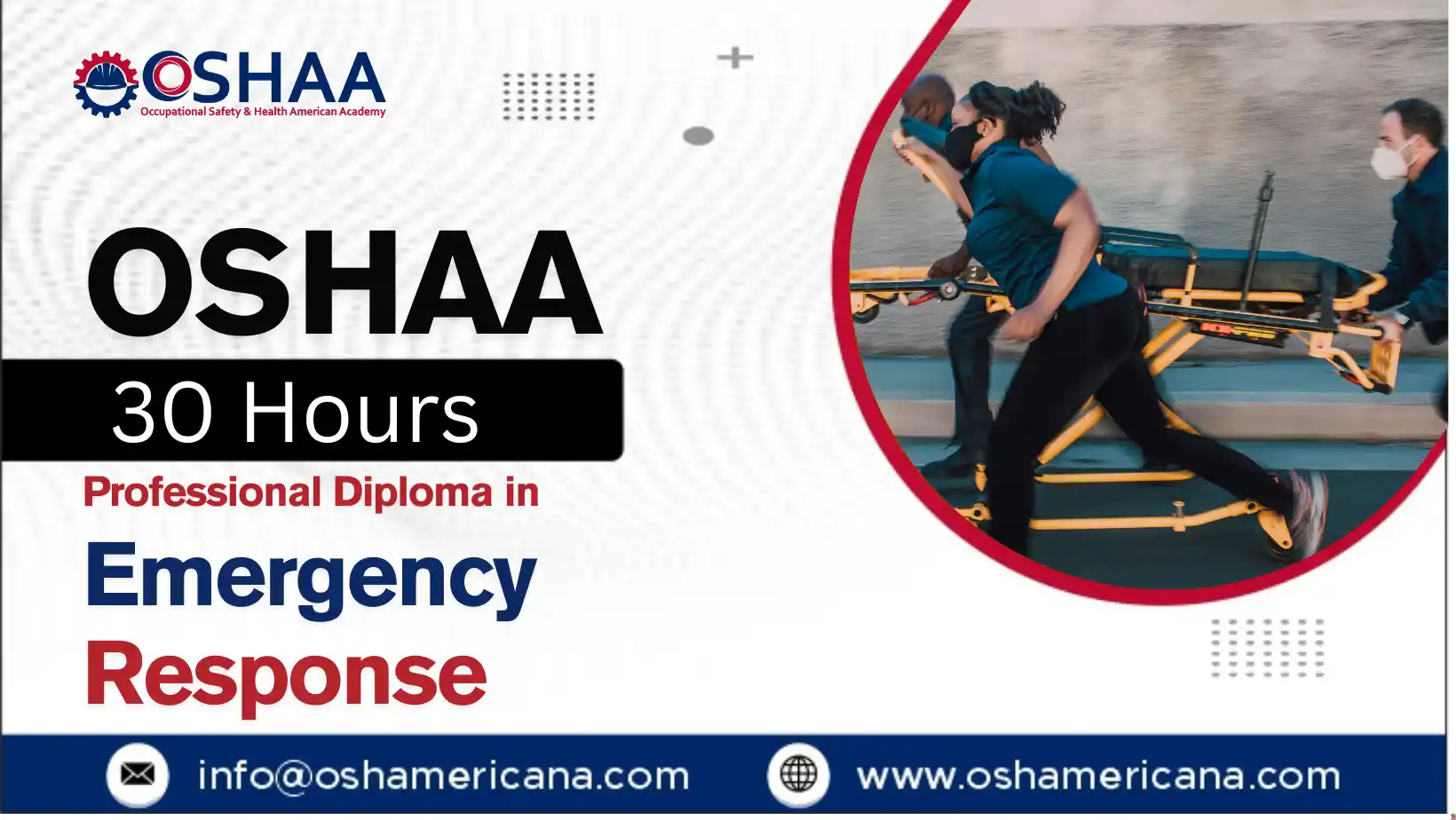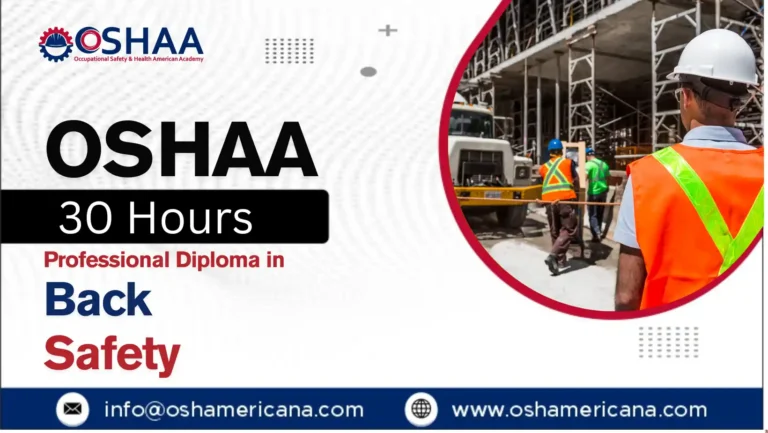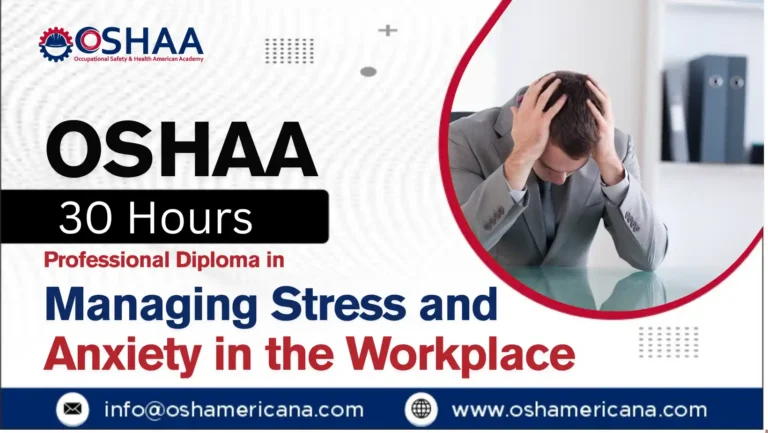Professional Diploma in Emergency Response
The OSHAA 30-Hours Professional Diploma in Emergency Response is a targeted and practical training programme designed to prepare participants to act swiftly and effectively in emergency situations. With increasing demand for individuals capable of managing crises across various sectors, this diploma provides essential knowledge and skills to respond to medical, environmental, and workplace emergencies with competence and confidence.
Emergencies can occur without warning and require immediate, informed action to protect life, health, and property. This diploma offers participants a structured introduction to emergency preparedness and response, ensuring they are equipped to handle a range of urgent scenarios. The course covers vital areas such as incident assessment, first aid, fire safety, evacuation procedures, and communication in emergencies.
Structured across 30 hours of guided learning, the programme combines theoretical understanding with hands-on application. Participants will explore key principles of emergency management, gain practical first aid knowledge, and learn how to coordinate response activities in both individual and team contexts. The course is ideal for workplaces, community organisations, healthcare settings, and individuals who may be required to act during critical incidents.
The OSHAA 30-Hours Professional Diploma in Emergency Response offers focused and practical training that meets professional standards for safety and crisis readiness. Participants benefit from expert-led instruction, real-life scenario practice, and a structured learning path that enhances their ability to respond quickly and effectively in critical situations.
On completion, participants may progress to advanced emergency management training or specialised courses in first aid, fire safety, health and safety, or disaster response. The diploma also serves as a valuable addition to CVs and professional profiles for roles requiring risk management and crisis handling capabilities.
OSHAA 30-Hours Professional Diploma in Emergency Response
Study Units
Learning Outcomes
Principles of Emergency Preparedness and Response (3 Hours)
- Recognise the importance of proactive planning in managing emergencies
- Identify different types of emergencies and appropriate levels of response
Risk Identification and Emergency Planning (4 Hours)
- Conduct basic risk assessments to identify potential hazards
- Develop emergency plans tailored to specific environments
- Understand the role of risk mitigation in effective emergency management
Incident Assessment and Initial Actions (3 Hours)
- Perform an initial assessment of emergency situations
- Prioritise actions based on the severity and nature of the incident
- Apply appropriate techniques for ensuring immediate safety and control
First Aid for Medical Emergencies (5 Hours)
- Provide basic first aid for common medical emergencies including bleeding, burns, and fractures
- Recognise symptoms of critical conditions such as heart attacks and strokes
- Apply CPR and use automated external defibrillators (AEDs) confidently
Fire Safety and Prevention Techniques (4 Hours)
- Identify fire hazards and implement basic prevention strategies
- Understand the fire triangle and classes of fire
- Operate fire extinguishers safely and respond effectively to fire incidents
Evacuation Planning and Crowd Management (6 Hours)
- Design and implement safe evacuation plans for different settings
- Manage the movement of people during emergencies to minimise panic
- Coordinate crowd control and maintain order in high-stress scenarios
Emergency Communication and Reporting Procedures (3 Hours)
- Communicate clearly and effectively during emergency situations
- Follow reporting protocols for documenting incidents and responses
- Understand the role of communication in maintaining safety and coordination
Working with Emergency Services and Response Teams (2 Hours)
- Recognise the roles of various emergency services in incident response
- Collaborate effectively with emergency personnel during crises
- Understand protocols for integrating with external response teams
Course Benefits – OSHAA 30-Hours Professional Diploma in Emergency Response
- Develop practical skills to assess, manage, and respond to a wide range of emergency situations
- Gain essential knowledge in first aid, fire safety, evacuation planning, and crisis communication
- Build the confidence to act quickly and effectively under pressure during medical or environmental emergencies
- Enhance workplace safety and compliance through structured emergency planning and response training
- Learn to work collaboratively with emergency services and response teams for coordinated incident management
- Improve decision-making, leadership, and communication skills during high-risk scenarios
- Strengthen your professional profile with a recognised qualification aligned with UK safety standards
- Prepare for a variety of roles that involve responsibility for safety, risk, and emergency readiness
- Contribute meaningfully to personal, workplace, or community emergency preparedness efforts
- Gain a competitive edge in careers related to security, healthcare, education, construction, and public service
The OSHAA 30-Hours Professional Diploma in Emergency Response is ideal for participants who are responsible for safety and emergency procedures in their professional or community roles. This course is particularly suitable for:
- Health and safety officers, supervisors, and site managers across various industries
- Professionals working in healthcare, construction, education, transportation, and hospitality
- Security personnel and facility coordinators involved in emergency planning
- Volunteers or staff in community services, public safety, and disaster response roles
- Individuals seeking to enhance their personal skills in handling medical, fire, or environmental emergencies
- Those aiming to improve their employability in roles requiring emergency preparedness knowledge
This course supports participants in developing the critical skills needed to respond effectively to emergencies, making them valuable contributors to safe and resilient environments.







